
To understand the reasons for cutting carbon emissions, it’s important to understand the dangers of climate change.
The issue starts with the burning of fossil fuels, which causes carbon dioxide and other Greenhouse Gases (GHGs) to be released into the air. These act as a warming layer around the earth that trap the sun’s heat in our atmosphere and stop it escaping into space.
Since the industrial revolution, the levels of GHGs released into the air as a result of human activity have increased, leading to a corresponding warming effect on the planet.
Changes to global climate are already happening and are visible through the increased prevalence of heatwaves, floods, droughts and fires.
Other impacts include damage to marine ecosystems leading to fisheries failing, sea level rise, increased risk to water supplies and a rise in global food insecurity as well as an unprecedented loss of biodiversity.
Decarbonisation describes the process of reducing, and ultimately removing, the GHG emissions produced as a by-product of the functioning of an economy. It applies to all sectors within an economy, such as power generation, industry, residential and non-residential development, land use and agriculture, and transport.
For TfN our focus is on reducing emissions from surface transport in the North, recognising that to do this, we also need to understand how our transport system supports and is reliant upon a range of other ‘systems’ such as access to clean power and comprehensive digital connectivity.
Net Zero is a term used to describe an end state where we reduce GHG emissions as much as possible, but still have a small amount that are unavoidable (e.g. from some areas of food production).
These residual emissions must then be ‘soaked up’ to achieve a balance where we are sequestering an equal (or greater) amount of GHGs than we are emitting. Methods to ‘soak up’ or sequester these residual GHG emissions include Carbon Capture and Storage (CCS), tree planting, and soil carbon enhancement.
If the UK is to be in line with the ambitions of the Paris Agreement and the UK’s 2050 Net Zero target, it is highly likely that the transport sector, excluding aviation and shipping, will need to be almost completely decarbonised prior to 2050. We call this ‘near-zero’. Through our Transport Decarbonisation Strategy, we’re committing to a regional near-zero carbon surface transport network by 2045.
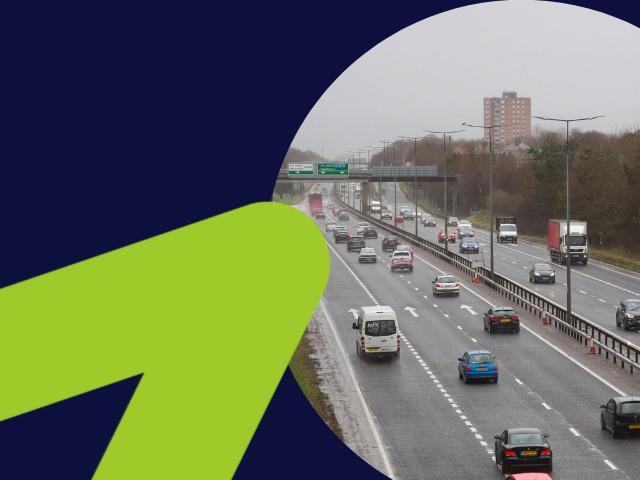
Whilst reducing emissions is the most effective way of managing the effects of climate change, by virtue of reducing the level of change that may be experienced in the future; a significant level of change to our local climate is already ‘baked in’ as a result of emissions already released.
TfN’s Strategic Transport Plan has already outlined the challenges for our region posed by a changing climate, highlighting the key risks for our rail and road infrastructure identified by the latest UK Climate Change Risk Assessment (CCRA3). This analysis showed that over 20% of railway stations and 7% of railway track in England are at significant risk of flooding, with that rising to over 40% and 10% respectively in a +4oC world by 2080.
At TfN, we are developing an understanding of the vulnerability of our heavy rail infrastructure, Major Road Network (MRN) and relevant energy distribution infrastructure in the North, to a number of climate hazards. We will analyse our findings alongside other TfN data, such as TfN’s, Transport Models, EV charging infrastructure framework and the underlying data sets behind our transport related social exclusion workflows.
We will incorporate the outcomes of this work when considering adaptation investment priorities within wider investment prioritization.
The government’s Transport Decarbonisation Plan proposes a clear role for Sub-national Transport Bodies to turn national priorities into actionable plans for their region and supporting the governments decarbonisation objectives by ensuring a coherence in approach across local authority borders.
A key component of this work supporting our partners in the preparation of their Local Transport Plans, through providing evidence and data that our partners can use to underpin sustainable transport policy proposals and interventions, as well as their Electric Vehicle (EV) charging infrastructure strategy.Information and links to TfN’s range of decarbonisation tools can be found on our Carbon Reduction webpage.
More on Quantified Carbon Reduction

Our vision is to see a system where every person and business has access to high quality, accessible and affordable zero carbon transport.
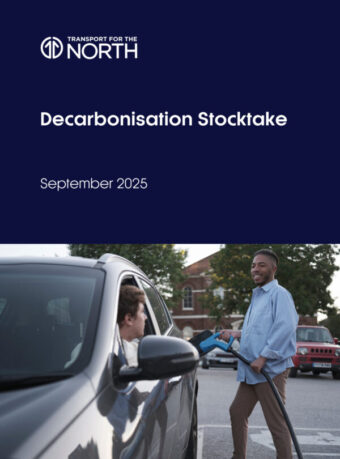
Our Decarbonisation Stocktake reviews the progress we’ve made toward our 2045 emissions target (set out in our Decarbonisation Strategy) and the actions we need to take next
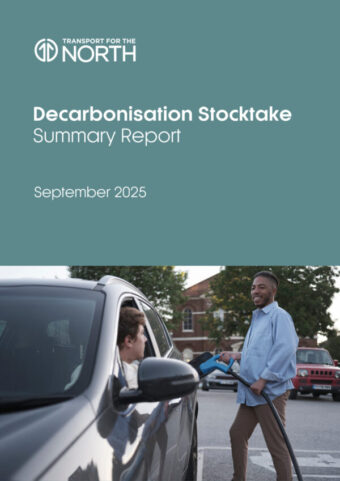
This report summarises our Decarbonisation Stocktake, which reviews the progress we’ve made toward our 2045 emissions target and the actions we need to take next.
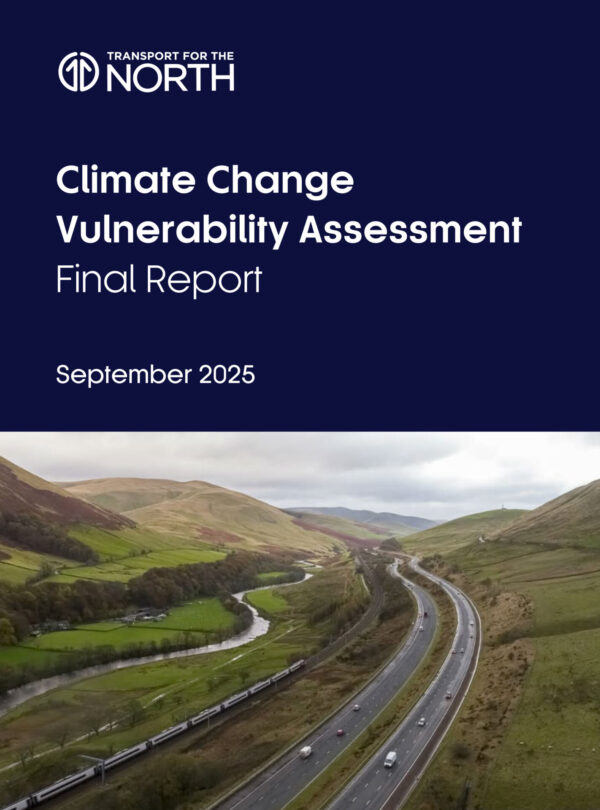
Transport for the North’s (TfN’s) Climate Change Vulnerability Assessment aims to improve understanding of how risks such as extreme temperatures, flooding and ground inst
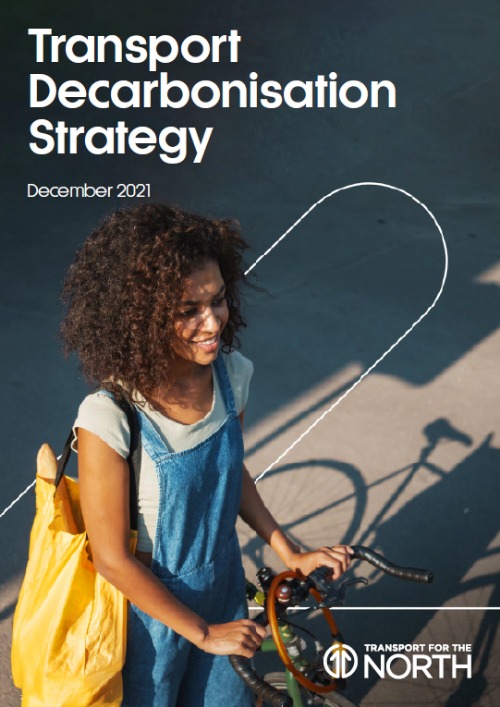
Our Transport Decarbonisation Strategy is the culmination of efforts from TfN and our partners across the North to create the tools, capability and evidence that will help sha
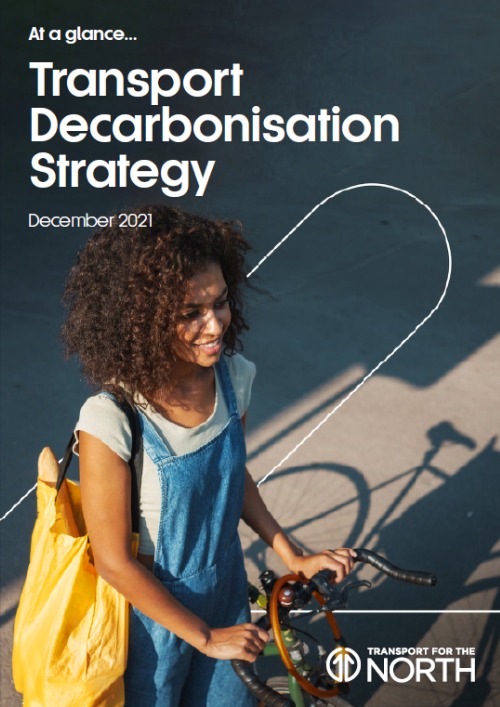
At a glance is the summary version of the Transport Decarbonisation Strategy.
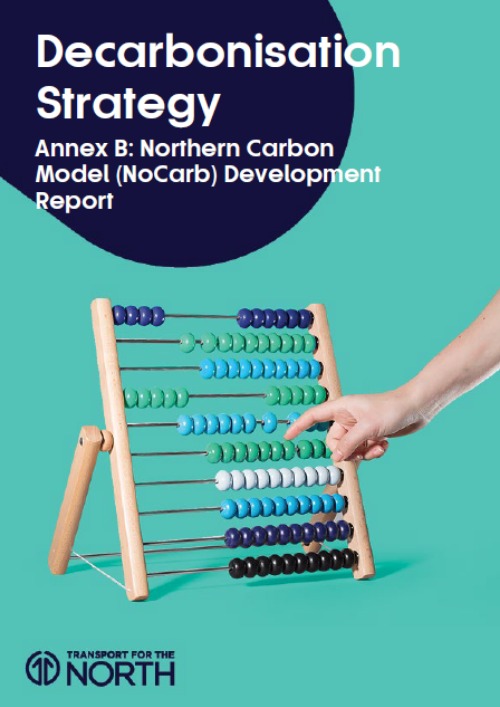
This report outlines the development methodology for TfN’s NoCarb Tool: a vehicle fleet model that produces a baseline estimate for surface transport emissions in the North
CLOSE POPUP [X]